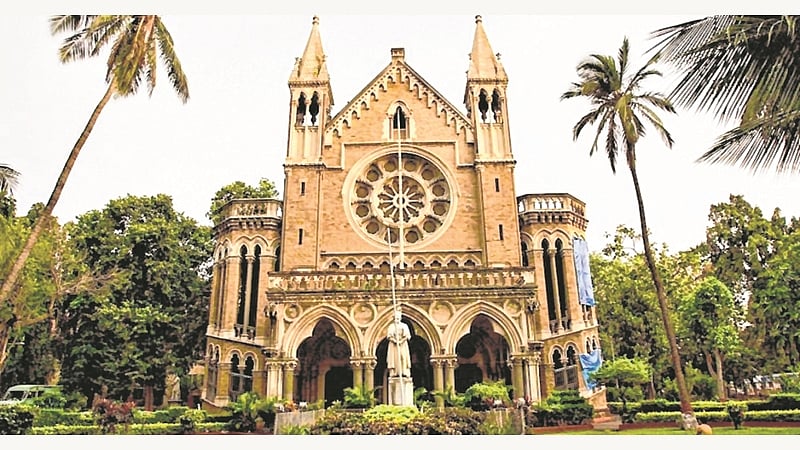The Comptroller and Auditor General’s (CAG ) report for the years 2006-07 to 2016-17 makes a starling revelations about the pathetic state of affairs in the University of Mumbai- once a premier national institution. It says 70% of colleges affiliated to the University lack basic infrastructure and facilities. No record of colleges having affiliation is available, resulting in many colleges not even bothering to apply for affiliation. In a serious indictment of the University, the report observes, “it is sad to note that a public institution has become cmmericalised …It is because of such practices that the standards are deteriorating.”
More shocking is the revelation that the University has been violating the guidelines of the Rashtriya Uchchatar Shiksha Abhiyan (RUSA) by investing its funds in fixed deposits. The University had received Rs 5.86 crore under the RUSA scheme in 2015-16. Out of this, Rs 5 core was invested as fixed deposit and the University has not utilized any amount, with the remaining Rs 0.86 crore, being returned to the RUSA due to non-approval of the work by the Expert Committee of the University. The interest accrued form the FDs, worth Rs 37.50 lakh, was not credited to RUSA.
The FDs worth Rs 111 core in just last 17 months were prematurely withdrawn, resulting in loss of huge interest, to meet the day-to-day expenses and pay salaries of the staff, with the state government not releasing the grants worth Rs 240 crore for obvious reasons. The people at the helm, being incompetent with no bona-fide credentials, has caused the University irreparable damage to its image and reputation. It is absurd and senseless to talk of raising our universities to world standards when the first priority is to ensure they are administered efficiently, devoid of any unethical and illegal practices.
The University has about 800 affiliated colleges. But only one in three is accredited by the NAAC, with the University itself failing to get re-accredited, having its accreditation lapsed in April last year. Consequently, the University missed out on the funds allocated for the year 2017-18 under the RUSA scheme for want of accreditation. The NAAC accreditation is necessary for academic autonomy and funding from central agencies like the UGC.
However, the politics of Local inquiry Committees that visit colleges for assessment & recommendation for grant of affiliation and the corrupt practices adapted by them keep a large chunk of colleges on tenterhooks, denying them permanent affiliation and the benefits that accrue from that, in spite of the Maharashtra Public Universities Act 2016, making it mandatory for colleges with five years standing to receive permanent affiliation. Out of 800 colleges, only some 200 have been granted permanent affiliation by the university.
At the national level, out of nearly 50,000 colleges, just 15% of them are accredited by the NAAC, The NAAC is overburdened due to non availability of qualified assessors and in the absence of other competitive agencies to assess and accredit the institutions of higher learning. Even the credibility of its accreditation is questioned more often. On the other hand, obsession with NAAC accreditation is leading to unhealthy competition among colleges to manage high grades somehow in order to grab autonomy and the benefits that follow.
All this is the result of lopsided and short sighted policy, lack of vision and failure to understand the larger picture of emerging education scenario, with the role of public institutions declining and big entry of commercial profit oriented private players. The state government is giving a lip service to the cause of higher education without addressing the basic problems facing the universities and colleges. It wants more and more colleges to go for autonomy by obtaining ‘A’ Grade from the NAAC.
Recently, it announced the implementation of 7th Pay Commission pay scales in aided institutions, keeping in view the general elections next year and due to the pressure from the teachers’ organisations. But what about the majority of colleges self-financed and unaided where the teachers are hired and fired at will by the managements? No one talks about how these teachers are paid pittance and exploited, while it is a windfall for the teachers working in aided institutions.
Another major problem facing the University is loss of credibility of its examination system. As many as 35,000 students- 36%- of more than 97, 00 students who applied for reevaluation had been wrongly decaled failed at the University exams in 2017. They are now decaled passed after the reevaluation, raising serious doubt about the quality of assessment, with the students losing faith and trust in the university’s assessment process. Not a single examiner has been penalized for dereliction of duty.
Arjun Ghatule, Director, Board of Examinations and Evaluation, gave a bizarre reason for the University’s inaction: “If student passed an exam after reevaluation doesn’t mean it is the fault of the previous examiner. Reevaluation is meant to assess papers with a new perspective and if students pass, it is the advantage they get.” How could the University justify so many students failing and loosing academic year and even job opportunities for no fault of theirs?
Lacks of students are suffering because of the complicity of teachers and inept handling of the assessment work by the university. Further, the result of the reevaluation is declared months later, making the students to take the reexamination, only to be told subsequently that they had passed the earlier examination or improved the class and pass percentage. This is a serious failure on the part of the university for which it should be made to compensate the students for the monetary loss and the metal trauma they go through. The University is accouantable for the mess, arising out of its administrative incompetence.
Dr G Ramachandram is a Professor of Political Science and retired Principal, who published his magnum opus The Trial by Fire: Memoirs of a College Principal






